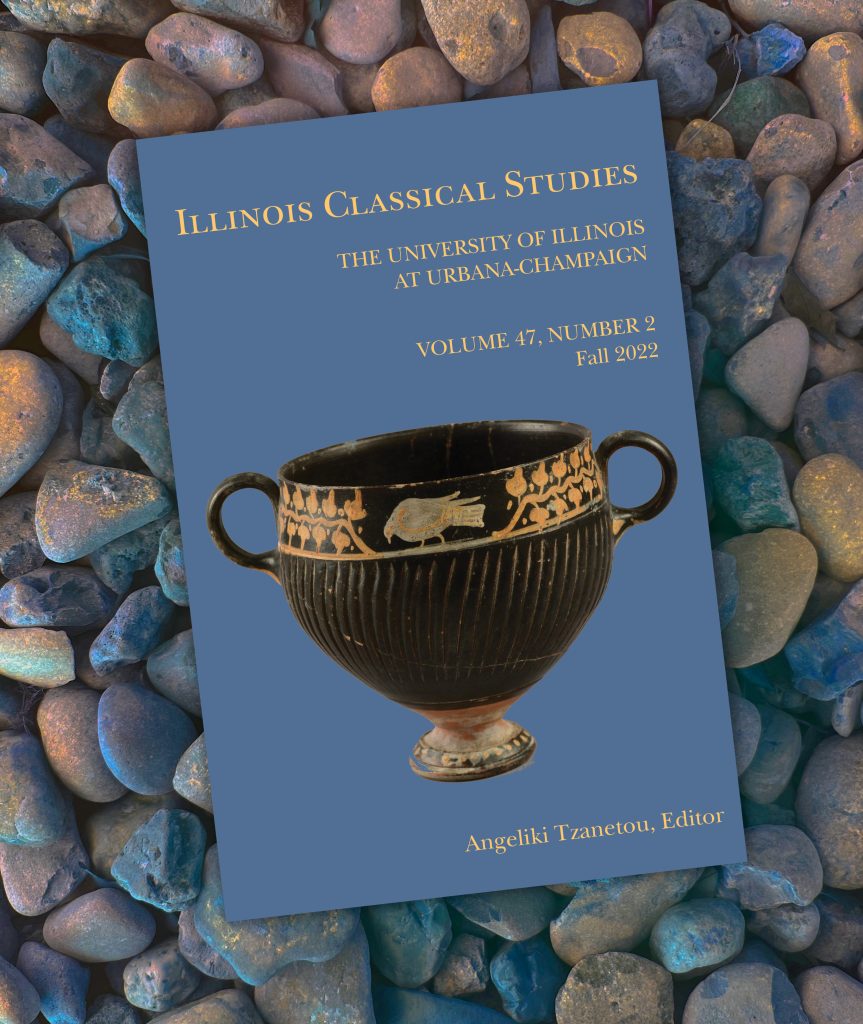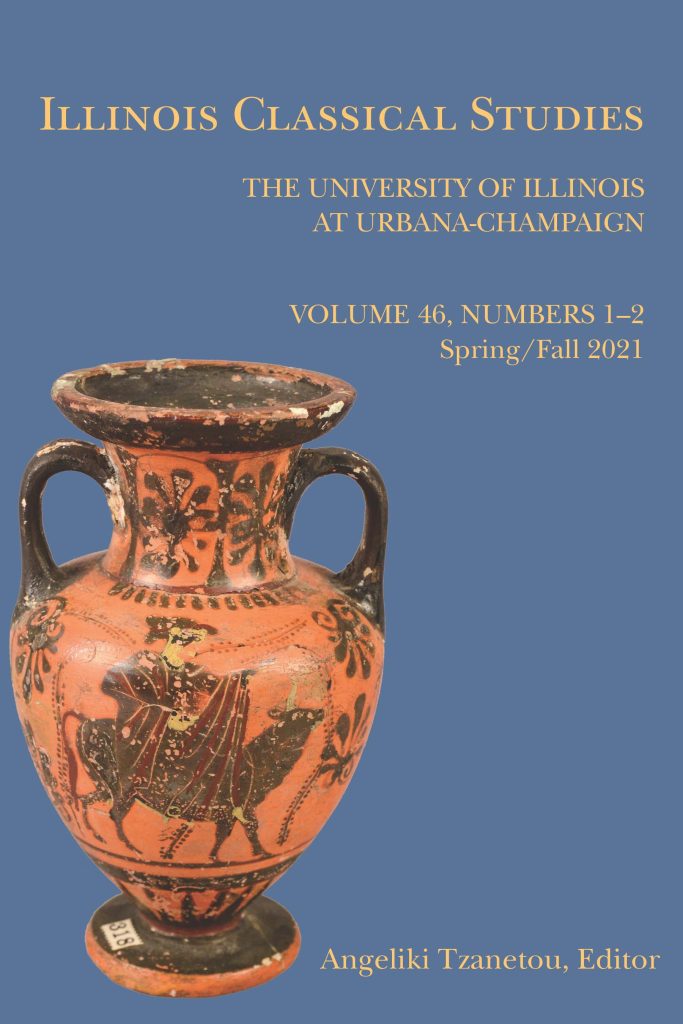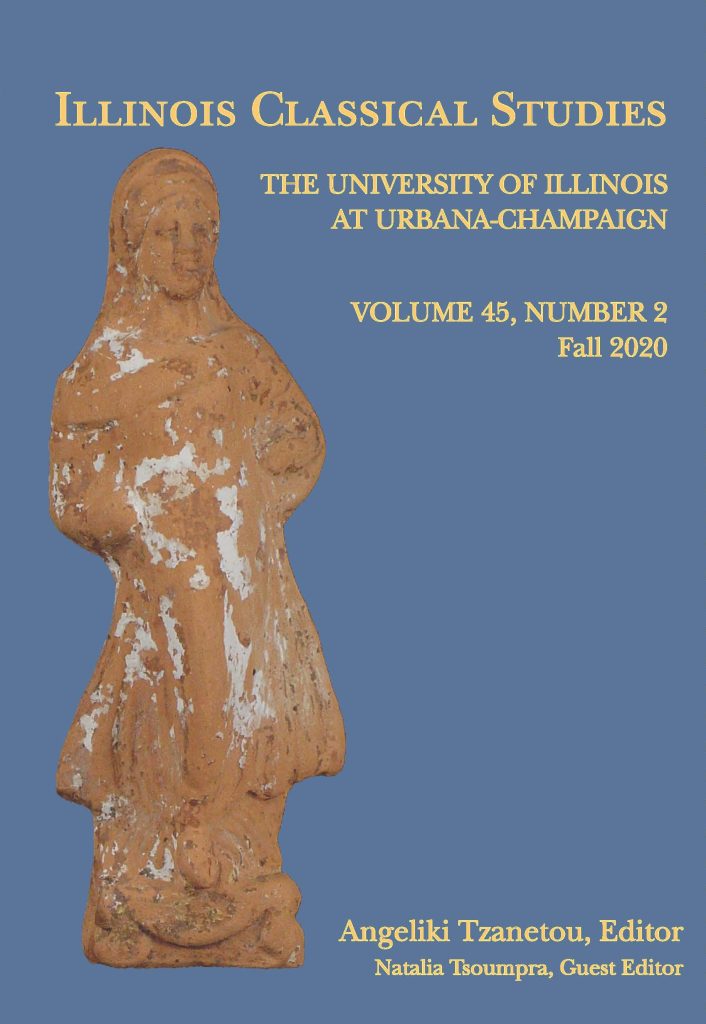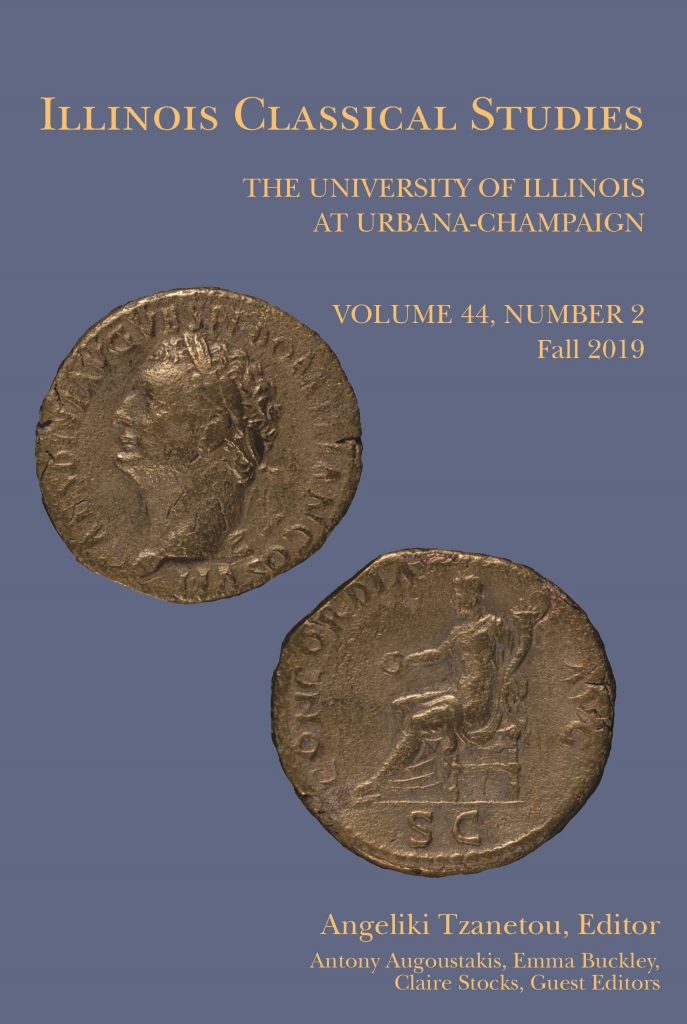Did you know that this week is National Classics Week? It’s an annual celebration of the Classics discipline that culminates in the anniversary of the founding of Rome over 2,700 years ago on April 21st. In honor of the week, we wanted to highlight some articles from special issues of our journal, Illinois Classical Studies (ICS).

Free to access until June 30: “Love and Friendship in Plato’s Lysis: A Socratic Account” by Justin Clark
This article is in a special forum that originated from the Forty-Fifth Annual Ancient Philosophy Workshop. Clark seeks to provide a new interpretation of the Lysis, asserting that it contains a positive Socratic answer about friendship. In order to uncover the positive answer, he claims that we must read Lysis alongside other early dialogues of definition. By reading Lysis alongside Charmides, Clark manages to solve two interpretive problems—the problem of the first friend and the problem of egoism.

“Ovid’s Heroides 3 and the inventio of Criseyde in the Medieval Matter of Troy” by Marilynn Desmond
ICS Vol. 46, Iss.1-2, is a double issue that includes revised versions of essays at the international conference “Commentare, interpretare e riscrivere le Heroides di Ovidio” and brought together a group of recognized experts in the field to discuss the direction of Heroidean studies in the wake of the ground-breaking contributions that marked the latest ‘aetas Ouidiana.’ Desmond discusses how Heroides 3, with its focus on Briseis, develops an amatory reading of the traffic in women depicted in the Iliad. Heroides 3 transmitted this Ovidian version of the Homeric Briseis to the Medieval West in the absence of the Homeric epics.

“Undressing and Cross-dressing: Costume, Ritual, and Female Empowerment in Aristophane” by Natalia Tsoumpra
Initially conceived in a one-day colloquium “Costume in Aristophanes” that took place at the University of Oxford in October 2014, this special issue sought to add to this corpus of scholarly criticism by examining instances of costume change in Aristophanic comedy, on- and offstage. Some of the original contributors are represented in the volume, while other chapters were specifically commissioned. The highlighted article argues that the abuse of costume by the women in Lysistrata and Ecclesiazusae displays their dominance over the men while underscoring their femininity. This is particularly important in a genre where women in power are commonly viewed as masculine or androgynous.

“Building Meaning: Constructions of Imperial Power in Domitianic Architecture, Visual Culture, and Literary Sources” by Jean-Michel Hulls
Vol. 44, Iss. 2, began life as the conference “Un-damning Domitian: Reassessing the Last Flavian princeps,” held under the Celtic Conference in Classics at St. Andrews University in July 2018. The purpose of the conference was to reconsider Domitian as emperor and idea in the light of the significant advances in scholarship over roughly the last twenty years. Hulls’ article reads building as a theoretical act in relation to Domitianic architecture through the poetry of Martial and Statius, through elite writers such as Pliny, Suetonius, and Dio, and through Domitian’s own coinage and inscriptions. Domitian becomes a kind of writer, constructing his own existence through his utterances on and in architecture.
Find Out More:
Edited by Brian Walters, Illinois Classical Studies (ICS) was founded in 1976 by Miroslav Marcovich, Head of the Department of the Classics at the University of Illinois. Subsequent editors included Professors J. K. Newman, David Sansone, Gerald M. Browne, Danuta Shanzer, Antony Augoustakis, and most recently Angeliki Tzanetou. ICS publishes original research on a variety of topics related to the Classics, in all areas of Classical philology and its ancillary disciplines, such as Greek and Latin literature, history, archaeology, epigraphy, papyrology, patristics, the history of Classical scholarship, the reception of Classics in the Middle Ages, the Renaissance, and beyond. ICS also publishes thematic volumes, as shown in the special issues mentioned above.
- Listen to our podcast with former editor Dr. Angeliki Tzanetou, Dr. Isabel Ruffell, & Dr. Natalia Tsoumpra.
- Individual subscriptions can be made through the University of Illinois Press website.
- To recommend this title to your library, fill out this Library Request Form.
- Ready to see your work featured in Illinois Classical Studies? Submit original scholarly work here.
